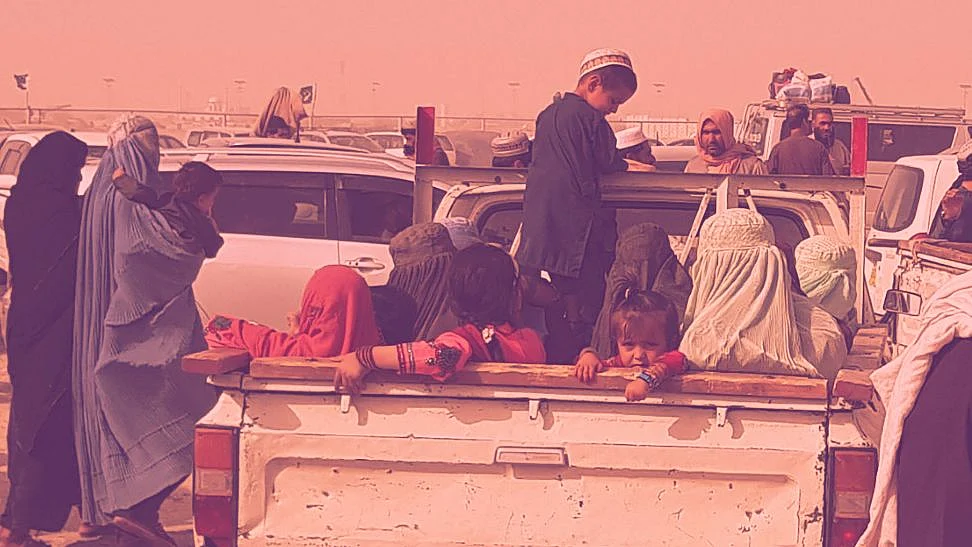
The World Must Not Look Away As The Taliban Sexually Enslaves Women And Girls
For Afghan women, their increasing power is terrifying. The world must not look away.

advertisement
Since the withdrawal of American and NATO forces from Afghanistan in July, the Taliban have swiftly taken control of large parts of the country. The president has fled and the government has fallen.
In early July, after Taliban leaders who took control of the provinces of Badakhshan and Takhar issued an order to local religious leaders to provide them with a list of girls over the age of 15 and widows under the age of 45 for “marriage” with Taliban fighters. It’s not yet known whether they’ve complied.
This order has caused profound fear among women and their families living in these areas and forced them to flee and join the ranks of internally displaced persons, adding to the humanitarian disaster unfolding in Afghanistan. In the past three months alone, 900,000 people have been displaced.
Reminiscent of Brutal Taliban Rule
This Taliban directive serves as a stark warning of what lies ahead and a harsh reminder of their brutal 1996-2001 regime during which women were subjected to persistent human rights violations, denied employment and education, forced to wear the burqa and forbidden from leaving home without a male “guardian” or mahram.
Offering “wives” is a strategy aimed at luring militants to join the Taliban. This is sexual enslavement, not marriage, and forcing women into sexual slavery under the guise of marriage is both a war crime and a crime against humanity. Article 27 of the Geneva Convention states:
In 2008, the United Nations Security Council adopted Resolution 1820 declaring that “rape and other forms of sexual violence can constitute war crimes, crimes against humanity.” It recognizes sexual violence as a tactic of war intent on humiliating, dominating and instilling fear in civilian members of the community.
How To Fight Back
The UN must now act decisively to prevent further atrocities against women in Afghanistan.
I propose four policy actions for the international community to bring about sustainable peace. They’re guided by Resolution 1820 that underscores the importance of including women as equal participants in the peace process and condemns all forms of gendered violence against civilians in armed conflict:
Calling for an immediate ceasefire to ensure the peace process can proceed in good faith.
Ensuring that women’s rights — enshrined in Afghanistan’s Constitution, national legislation and international law — are respected.
Insisting that peace negotiations continue with meaningful participation of Afghan women. Currently, there are only four women peace negotiators on the Afghan government’s team and none on the Taliban’s.
Lifting sanctions against the Taliban must be conditional on their commitment to uphold women’s rights. The European Union and the United States, currently the largest donors to Afghanistan, must make aid conditional upon women’s rights and their access to education and employment.
Women in Afghanistan and across the region would welcome efforts by the UN and the international community to ensure that survivors of sexual violence have equal protection under the law and equal access to justice.
There must be no impunity for acts of sexual violence as part of a comprehensive approach to seeking sustainable peace, justice and national reconciliation in Afghanistan.
(This is an opinion piece and the views expressed above are the author’s own. The Quint neither endorses nor is responsible for the same. This article was originally published on The Conversation. Read the original article here.)
(At The Quint, we question everything. Play an active role in shaping our journalism by becoming a member today.)
- Access to all paywalled content on site
- Ad-free experience across The Quint
- Early previews of our Special Projects
Published: 17 Aug 2021,07:04 AM IST